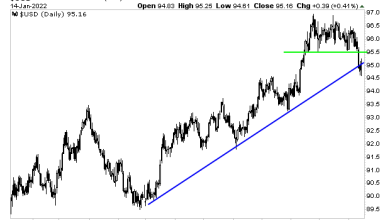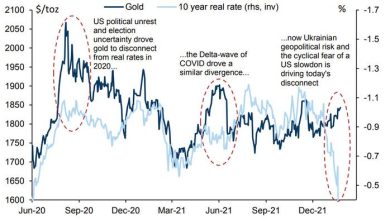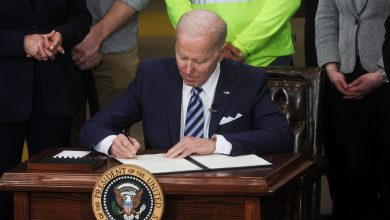Have Regulators Really Defused The Year-End $230 Trillion LIBOR Derivative Time-Bomb?

Years ago, we predicted that the Fed’s commitment to phase out Libor, the interest rate set by committee (not market forces) that had come to undergird trillions of dollars in loans and securities around the world, would ultimately prove unsuccessful.
Now, as the FT points out, it appears we were correct.
Libor won’t be phased out completely by the start of next year. While technically speaking no new securities can be bechmarked to Libor, there’s still the matter of the $230 trillion in existing contracts that rely on the benchmark. And the rates that undergird these contracts will continue to be published.
Still, plenty of other Libor rates won’t. Only the most popular will survive, according to the FT. So in a way, next month does mark the moment when “four years of arduous preparation to live without it goes into effect.”
“It’s one of the biggest transitions in financial markets in decades,” said Dixit Joshi, group treasurer of Deutsche Bank.
“This is a milestone for the regulators since the great financial crisis about lessons learned.”
But it’s not a complete break, which is what the world was promised in the wake of the scandals that inspired the decision.
Much lower in its story on the impending Libor deadline, the FT concedes that, in order to make the transition “work”, America’s financial regulators had to help build a workaround whereby futures markets based on the US dollar LIbor would need to be allowed to continue on until mid-2023, something we noted a year ago.
As a result, the US dollar Libor rates will continue to be published until that point (and potentially beyond mid-2023, once regulators devise some new excuse for keeping it alive for even longer).
According to one expert quoted by the FT, most people never even believed regulators would make it this far which is…not exactly a vote of confidence.
“If you’d asked anyone at the end of 2017 if this was going to happen by the end of 2021, they’d have laughed at you,” said Sarah Boyce of the UK’s Association of Corporate Treasurers.
Now it seems the skeptics have been partially vindicated.
That scepticism has been partially vindicated. Even as the year began, contracts worth $265tn were still attached to Libor. Embedding an alternative for US dollar Libor has been particularly tricky because it was a new rate. To ease the burden, UK and US authorities have allowed US dollar Libor for existing contracts to continue until mid-2023, although new business is barred after December. The FCA also allowed “synthetic” versions of sterling and yen Libor for a year to wean more stubborn contracts off the rate. Even so, daily publication of 24 Libor rates will go after December.
US regulators decided to create a whole new rate to try and wean people off of Libor, and still they’ve been met with only limited success. The new rate is called “Sofr” – the “Secured Overnight Financing Rate”. According to data from the government, the latest Sofr overnight rate is close to even with its Libor equivalent.
At the end of the day, forcing lenders to stop using Libor will be like “enforcing prohibition.” Parties will keep on using Libor until the very last second, until continuing on is no longer an option.
“Telling people to stop using Libor is like reimposing prohibition. People will keep drinking right up until the last moment,” said Mark Cabana, head of US rates strategy at Bank of America.
And regulators are warning now that this time, they’re for real.
“Market participants have all the tools they need to meet this deadline. The responsibility is on market participants to take the action needed to prepare for a world with no new Libor,” said Tom Wipf, a senior executive at Morgan Stanley, who chairs the industry body to lead the shift from US dollar Libor.
Even so, the market accepts change is coming. At CME Group, the world’s largest futures market, open positions in Sofr-linked futures outstripped Libor-linked futures for the first time in December.
Prosecutors first accused banks of more or less openly rigging Libor in their own favor to benefit their trading books back in 2012.
Even if regulators succeed at getting rid of Libor, pretty soon, a whole decade will have passed since the discovery of the ‘scandals’ that inspired regulators to go after Libor. Soon, people will forget why they even bothered to try to dump Libor in the first place. One critic described the transition as akin to “open heart surgery” for the financial system. And it’s going to be difficult to keep justifying something so taxing.
Source link






